AIChE holds an annual election for the Board of Directors. Board members are elected for three-year terms. In any given year, one-third of the Board will be up for election.
Any qualified member, senior member, or Fellow can run by petition for president-elect, secretary, treasurer, or director (but not president) by filing signatures of 100 or more voting members with the Office of the Secretary no later than 25 weeks prior to the annual meeting. Click on any candidate's name to see their bio and statement.
2014 Election Timeline
| May 27, 2014 | Petition Candidate Due |
| September 2, 2014 | Ballot Mail Date |
| September 16, 2014 | Election Commences |
| October 21, 2014 | Ballot Receipt Deadline |
| October 24, 2014 | Tellers Committee Meeting |
| November 17, 2014 | Results Officially Announced at the Annual Business Meeting in Atlanta, GA |
Slate of Candidates |
|
For President-Elect |
|
| Thomas R. "Tom" Hanley | Auburn University |
| Gregory N. "Greg" Stephanopoulos | MIT |
For Director |
|
| Abdulmohsen D. “Mo” Almajnouni | GE Oil & Gas, Jubail Saudi Arabia |
| Richard “Rich” Calabrese | University of Maryland |
| Alan E. Nelson | Dow Chemical |
| John O’Connell | University of Virginia |
| Timothy O. Odi | Chevron Phillips Chemical Company |
| Anne Skaja Robinson | Tulane University |
| Sharon M. Robinson | Oak Ridge National Laboratory |
| S. Shariq Yosufzai | Chevron Corporation |
For President-Elect
Thomas R. Hanley
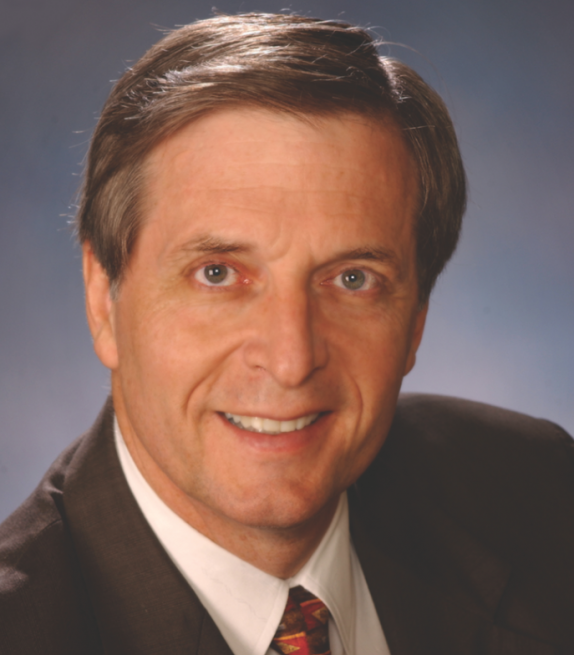 Thomas R. Hanley is a professor of chemical engineering at Auburn Univ. After earning three degrees at Virginia Tech and a tour at the Air Force Materials Laboratory, he moved to Tulane Univ., where he served as AIChE student chapter advisor and chaired the New Orleans Section. At Rose-Hulman Institute of Technology, he chaired AIChE’s Terre Haute Section. While department chair at Louisiana Tech and Florida A&M/Florida State Univ., he was General Arrangements Chair (1986 Annual Meeting), Meeting Program Chair (1988 Annual Meeting), and chair of the Tallahassee Section. While dean of engineering at the Univ. of Louisville, he chaired the Student Chapters Committee, the Management Div., and the AIChE Foundation. He served on the Career and Education Operating Council and the Board of Directors. An AIChE Fellow, he chairs the Audit Committee, serves on the Executive Committee of the AIChE Foundation and the Education and Accreditation Committee, and participates on the International Committee and in the North American Mixing Forum. A member of the Committee of 100 at Virginia Tech, he served on the Plasticolors Board of Directors and the Michigan Tech college advisory board.
Thomas R. Hanley is a professor of chemical engineering at Auburn Univ. After earning three degrees at Virginia Tech and a tour at the Air Force Materials Laboratory, he moved to Tulane Univ., where he served as AIChE student chapter advisor and chaired the New Orleans Section. At Rose-Hulman Institute of Technology, he chaired AIChE’s Terre Haute Section. While department chair at Louisiana Tech and Florida A&M/Florida State Univ., he was General Arrangements Chair (1986 Annual Meeting), Meeting Program Chair (1988 Annual Meeting), and chair of the Tallahassee Section. While dean of engineering at the Univ. of Louisville, he chaired the Student Chapters Committee, the Management Div., and the AIChE Foundation. He served on the Career and Education Operating Council and the Board of Directors. An AIChE Fellow, he chairs the Audit Committee, serves on the Executive Committee of the AIChE Foundation and the Education and Accreditation Committee, and participates on the International Committee and in the North American Mixing Forum. A member of the Committee of 100 at Virginia Tech, he served on the Plasticolors Board of Directors and the Michigan Tech college advisory board.Statement:
AIChE and the chemical engineering profession have made significant progress in identifying and meeting the ever-changing opportunities and challenges in today’s operating environment. The Institute must continue to investigate methods for revenue generation while adjusting programs to meet the needs of our members. I am encouraged by the Institute’s recent accomplishments, and, as president, I will focus on maintaining/expanding these gains and investigating new opportunities, including:
- additional interaction with student chapters at meetings and at regional conferences to promote continuing membership in the Institute
- continuing review of the evolving needs of members to allow appropriate Institute support, particularly for the transition of graduating students
- generation of revenue-producing activities similar to those in other professional societies
- expansion of the AIChE Foundation to the individual member, offering the opportunity to support programs of interest
- continued growth of AIChE in global opportunities that increase membership and provide a broader impact on chemical engineering issues
- enhanced interaction with elected officials to assist in providing solutions in established and emerging technologies.
I have great confidence in AIChE and am indebted to the Institute for the opportunities it has given me. Working together, I’m certain that we can continue to improve and strengthen AIChE and ensure its continuing support to our profession. Please contact me at hanley@auburn.edu to discuss any issue facing AIChE.
Gregory Stephanopoulos
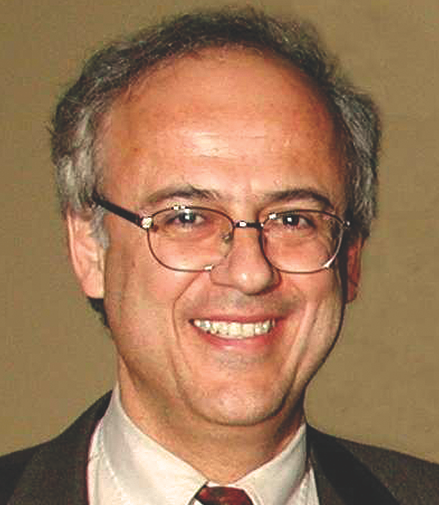 Gregory Stephanopoulos is the W. H. Dow Professor of Chemical Engineering at MIT. After obtaining his chemical engineering doctorate at Univ. of Minnesota, he taught at Caltech before joining MIT in 1985. His research focuses on metabolic engineering — the engineering of microbes to convert them to chemical factories for the production of fuels and chemicals. He has co-authored or edited five books, 380 papers, and 50 patents, and supervised more than 110 graduate students and post-docs. He is editor-in-chief of two journals, and serves on the editorial boards of seven scientific journals and the advisory boards of five chemical engineering departments. Among his 15 major awards are AIChE’s Food, Pharmaceutical, and Bioengineering (FPBE) Div. Award, Wilhelm Award, and Founders Award. In 2002 he was elected to AIChE’s Board of Directors. He is an AIChE Fellow and Trustee of the AIChE Foundation. He is also a Member of the
Gregory Stephanopoulos is the W. H. Dow Professor of Chemical Engineering at MIT. After obtaining his chemical engineering doctorate at Univ. of Minnesota, he taught at Caltech before joining MIT in 1985. His research focuses on metabolic engineering — the engineering of microbes to convert them to chemical factories for the production of fuels and chemicals. He has co-authored or edited five books, 380 papers, and 50 patents, and supervised more than 110 graduate students and post-docs. He is editor-in-chief of two journals, and serves on the editorial boards of seven scientific journals and the advisory boards of five chemical engineering departments. Among his 15 major awards are AIChE’s Food, Pharmaceutical, and Bioengineering (FPBE) Div. Award, Wilhelm Award, and Founders Award. In 2002 he was elected to AIChE’s Board of Directors. He is an AIChE Fellow and Trustee of the AIChE Foundation. He is also a Member of theNational Academy of Engineering and Corresponding Member of the Academy of Athens.
Statement:
It is a great honor to be nominated for AIChE President-Elect. I have been a member of AIChE for 40 years and served the Institute as a leader of the FPBE Div.; a member of the Board of Directors; and co-Founder-Chairman of the Society for Biological Engineering (SBE). During this period, I have witnessed the evolution of chemical engineering and AIChE from a process-oriented discipline and fuels and chemicals-based organization, to a field that recognizes molecular engineering and multiscale optimization as critical elements of process development. Chemical engineering is unique in that it is founded on a tripod of sciences (physics, chemistry and biology), which makes it attractive for many diverse areas of application, such as microelectronics, biotechnology, food, and pharmaceuticals. While this diversity has offered opportunities for chemical engineers to pursue successful careers in many areas, it has presented challenges to the strength of our professional organization, AIChE.
As AIChE President, my top priority will be to increase membership. To this end, I will reach out to those chemical engineers who thrive in other areas, building bridge organizations between AIChE and other disciplines following the successful model of SBE and the Center for Energy Initiatives. I will use the resurgence of interest in energy and the production of chemicals as means to emphasize the importance of the chemical engineering paradigm in the competitiveness and growth of the chemical and energy industries. Finally, I will try to expand the international reach of AIChE and strengthen its role as the global home of chemical engineers. This is my way of giving back to an organization that has been pivotal to my professional development. I will be happy to receive comments at gregstep@mit.edu.
For Director
Abdulmohsen D. Almajnouni
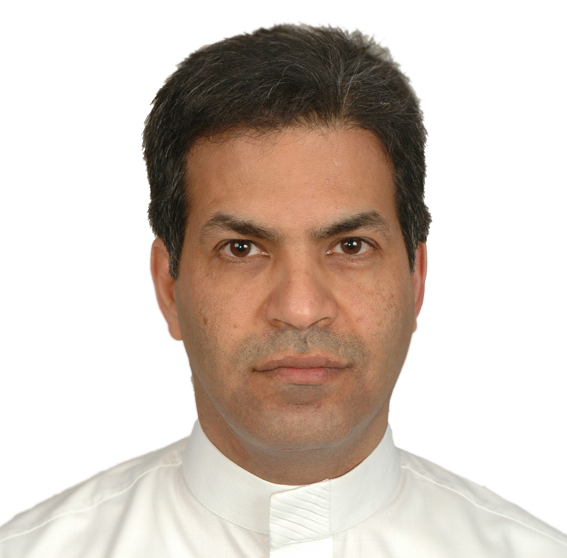 Mohsen Almajnouni is the Sector Head of Energy, Power, Chemicals Manufacturing, Water, and Information Technology for the Saudi Arabia General Investment Authority (SAGIA). He has more than 20 years of experience in gas processing and treating, refining and petrochemicals, utilities, and exploration and production. Mohsen was previously the Refining and Petrochemical Leader for General Electric in Saudi Arabia, promoting GE’s products and services in the region. He had prior experience as the Global Process Domain Manager at SABIC’s Manufacturing Center of Excellence, and consulted on process engineering for SABIC’s sites. He began his career at Saudi Aramco in 1988, before moving to other industrial experiences. He earned a BS from King Fahd Univ. of Petroleum and Minerals, and a Master of Engineering degree at Cornell Univ., both in chemical engineering. He is chair of AIChE’s Saudi Arabia Section (SAS-AIChE) and a member of AIChE’s International Committee.
Mohsen Almajnouni is the Sector Head of Energy, Power, Chemicals Manufacturing, Water, and Information Technology for the Saudi Arabia General Investment Authority (SAGIA). He has more than 20 years of experience in gas processing and treating, refining and petrochemicals, utilities, and exploration and production. Mohsen was previously the Refining and Petrochemical Leader for General Electric in Saudi Arabia, promoting GE’s products and services in the region. He had prior experience as the Global Process Domain Manager at SABIC’s Manufacturing Center of Excellence, and consulted on process engineering for SABIC’s sites. He began his career at Saudi Aramco in 1988, before moving to other industrial experiences. He earned a BS from King Fahd Univ. of Petroleum and Minerals, and a Master of Engineering degree at Cornell Univ., both in chemical engineering. He is chair of AIChE’s Saudi Arabia Section (SAS-AIChE) and a member of AIChE’s International Committee.Statement:
In my humble opinion, the future of the chemical engineering profession depends on building strong AIChE local sections to engage diverse stakeholders, including but not limited to collaboration with student chapters and young professionals. Furthermore, we should also focus on increasing the number of local sections outside the United States, especially in locations where there is heavy focus on chemical industries. We should establish a program where lessons learned and best practices can be shared between all local sections worldwide. It is crucial to ensure the presence of industry leaders and decision makers in the boards of local sections even at an honoree level. I have witnessed that the strength of any local section lies in the strength of its leaders. Given this, I plan to focus my efforts as a director on strengthening local sections by:
- capitalizing on my network and business connections to establish new local sections in the Middle East, North Africa, and Turkey
- supporting the local sections globally by sharing lessons learned and best practices
- establishing new student chapters in the vicinity of local sections
- identifying leaders and supporting them to run the local sections and student chapters
- encouraging sections to establish young professionals committees
- initiating local conferences to share knowledge and best practices with all sections
- engaging and leveraging the International Committee to support our efforts.
Based on my over 18 years of experience and service to various professional societies, I realize the personal commitment it takes to serve as a director and I look forward to giving the time and effort to support AIChE.
Richard V. Calabrese
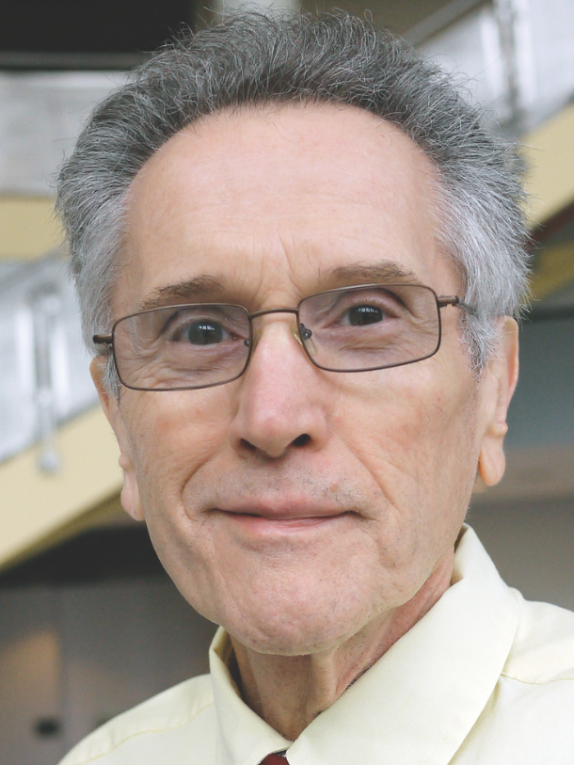 Richard V. Calabrese is Professor of Chemical and Biomolecular Engineering at the Univ. of Maryland (UM). His ChE degrees are from the Univ. of Rochester (BS) and the Univ. of Massachusetts (MS, PhD). Rich’s expertise is in applied fluid dynamics and multiphase flow. He is Director of UM’s High Shear Mixing Research Consortium and a consultant to industry. Rich received the North American Mixing Forum (NAMF) Award for Sustained Contributions to Mixing Research and Practice; was Fulbright Senior Scholar and SERC Visiting Fellow at the Univ. of Birmingham (UK); Visiting Scientist in DuPont’s Particle Science and Technology group; and Technical Adviser in the Office of the Assistant Secretary for Fossil Energy at DOE. He has been a subject editor for Chemical Engineering Research and Design and serves on technical issue resolution teams for DOE’s Hanford (nuclear) Waste Treatment Plant. Rich is a Fellow of AIChE and past chair of the Chemical Technology Operating Council. He is a member of the Public Affairs and Information Committee and the Center for Energy Initiatives’ Advisory Board, and co-chair of CEI’s NuClean initiative. He is a founding member and past president of NAMF.
Richard V. Calabrese is Professor of Chemical and Biomolecular Engineering at the Univ. of Maryland (UM). His ChE degrees are from the Univ. of Rochester (BS) and the Univ. of Massachusetts (MS, PhD). Rich’s expertise is in applied fluid dynamics and multiphase flow. He is Director of UM’s High Shear Mixing Research Consortium and a consultant to industry. Rich received the North American Mixing Forum (NAMF) Award for Sustained Contributions to Mixing Research and Practice; was Fulbright Senior Scholar and SERC Visiting Fellow at the Univ. of Birmingham (UK); Visiting Scientist in DuPont’s Particle Science and Technology group; and Technical Adviser in the Office of the Assistant Secretary for Fossil Energy at DOE. He has been a subject editor for Chemical Engineering Research and Design and serves on technical issue resolution teams for DOE’s Hanford (nuclear) Waste Treatment Plant. Rich is a Fellow of AIChE and past chair of the Chemical Technology Operating Council. He is a member of the Public Affairs and Information Committee and the Center for Energy Initiatives’ Advisory Board, and co-chair of CEI’s NuClean initiative. He is a founding member and past president of NAMF.Statement:
Chemical engineers have increasingly applied chemical process principles to a spectrum of needs, from materials discovery and manufacturing to product development, energy, the environment, and medicine. We have integrated scientific principles into core competencies from the molecular to the plant scale and beyond. Our broad perspective provides opportunities within the global economy but also presents challenges, such as the need to offer diverse curricula, rapidly reduce research to practice, and provide society with unbiased information that informs national priorities.
AIChE meets these challenges through its technical, educational, and outreach programs. As a director, I will draw on my experience to more seamlessly integrate these functions to improve interaction and information flow among AIChE’s entities. I will work to:
- promote AIChE as a trusted source of information for government and society on security, energy, environment, safety, and health
- facilitate collaborations among entities — locally, nationally, and globally — to increase the visibility and impact of our outreach programs
- increase international participation in AIChE leadership
- increase opportunities for AIChE entities to disseminate educational content to students, young professionals, and local sections
- leverage AIChE’s web capabilities to facilitate interaction among volunteers and staff, while expanding professional development services
- more effectively integrate programming and publications to ensure timely dissemination of technical content.
Thank you for your consideration. I welcome your questions and comments at rvc@umd.edu.
Alan E. Nelson
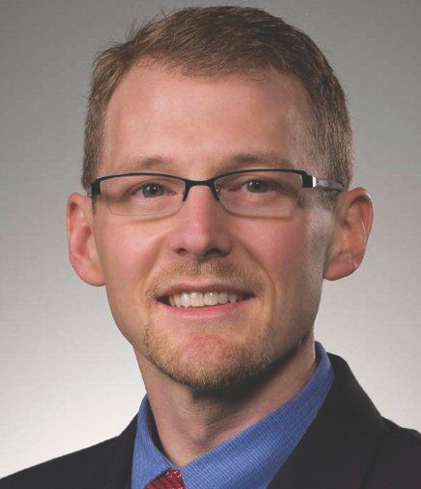 Alan E. Nelson is the R&D Director for Performance Monomers for The Dow Chemical Company, where he is responsible for product and process engineering for acrylic monomers. He has held a number of other roles at Dow, including R&D Director for both Energy Materials and Engineering Sciences in Corporate Research and Development. Prior to Dow, Alan was Associate Department Chair and an associate professor in the Dept. of Chemical and Materials Engineering at the Univ. of Alberta. He was awarded Canada’s Natural Sciences and Engineering Research Council/Imperial Oil Associate Industrial Research Chair in Oil Sands Upgrading, and was a principal investigator for the Centre for Oil Sands Innovation. He received his PhD from Michigan Technological Univ. and his BS from the Univ. of Minnesota Duluth, where he is a member of the Academy of Science and Engineering. Alan has significant experience in product and process design for new innovations in energy, water, transportation, and infrastructure market segments.
Alan E. Nelson is the R&D Director for Performance Monomers for The Dow Chemical Company, where he is responsible for product and process engineering for acrylic monomers. He has held a number of other roles at Dow, including R&D Director for both Energy Materials and Engineering Sciences in Corporate Research and Development. Prior to Dow, Alan was Associate Department Chair and an associate professor in the Dept. of Chemical and Materials Engineering at the Univ. of Alberta. He was awarded Canada’s Natural Sciences and Engineering Research Council/Imperial Oil Associate Industrial Research Chair in Oil Sands Upgrading, and was a principal investigator for the Centre for Oil Sands Innovation. He received his PhD from Michigan Technological Univ. and his BS from the Univ. of Minnesota Duluth, where he is a member of the Academy of Science and Engineering. Alan has significant experience in product and process design for new innovations in energy, water, transportation, and infrastructure market segments.Statement:
The dominance of process and manufacturing technology in the U.S. has been enabled by the long history of dedication to chemical engineering education and research. Our core competencies (transport phenomena, reaction engineering, and thermodynamics) have been, in large part, responsible for the growth of the U.S. chemical industry. These core competencies are now being challenged by a shifting definition of the field of chemical engineering and the lack of research funding in core areas. The American manufacturing renaissance will require a recommitment to chemical engineering education and research. This will also require deliberate action throughout the entire chemical engineering community, including students, educators, government agencies, and industry leaders. As a director of AIChE, I will focus my efforts to strengthen core chemical engineering and research by:
- enhancing university-industry collaborations in chemical engineering
- increasing alignment between funding (private and public) and core chemical engineering areas
- identifying opportunities to increase research in process engineering and chemical product design (product-by-process)
- continuing to lead AIChE’s eLearning and instructor-led education programs.
During the past 16 years, I have been an active member of AIChE, serving on the Continuing Education Committee, Career and Education Operating Council, and Awards Committee, among others. I also chaired the President’s Blue Ribbon Committee on eLearning and led the creation of AIChE’s online courses. I continue to be actively involved in eLearning, overseeing the course curriculum and ensuring the creation of relevant, high-quality courses. I am honored to have the opportunity to serve as a director and to support our professional organization.
John O’Connell
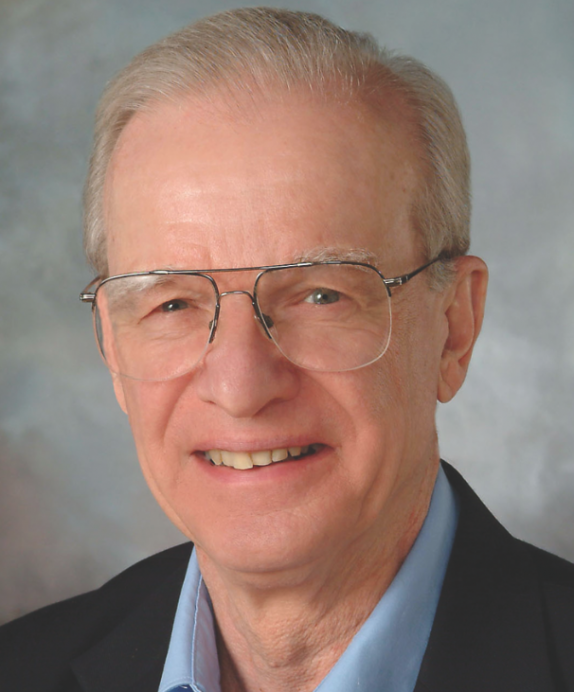 John O’Connell became Professor Emeritus at the Univ. of Virginia (UVa) in 2014, after more than 40 years in academia. He was Department Chair at the Univ. of Florida and UVa for a total of 11 years. He holds degrees from Pomona College (BA), MIT (SB, SM), and the Univ. of California, Berkeley (PhD). John has co-authored five books and published 150 papers focused on thermodynamics, properties for process design, and engineering education. He is an editor of Fluid Phase Equilibria and was Publication Board Chair for Chemical Engineering Education. John’s AIChE service includes: more than 30 years as an AIChE student chapter advisor (13 Outstanding Chapter Awards, two Outstanding Advisor Awards); Program Chair, 1989 Annual Meeting; Founding Chair, AIChE Fellows Council; Executive Board of the Program Committee; Chair, Engineering Sciences and Fundamentals Programming Group; and Director, Education Div.
John O’Connell became Professor Emeritus at the Univ. of Virginia (UVa) in 2014, after more than 40 years in academia. He was Department Chair at the Univ. of Florida and UVa for a total of 11 years. He holds degrees from Pomona College (BA), MIT (SB, SM), and the Univ. of California, Berkeley (PhD). John has co-authored five books and published 150 papers focused on thermodynamics, properties for process design, and engineering education. He is an editor of Fluid Phase Equilibria and was Publication Board Chair for Chemical Engineering Education. John’s AIChE service includes: more than 30 years as an AIChE student chapter advisor (13 Outstanding Chapter Awards, two Outstanding Advisor Awards); Program Chair, 1989 Annual Meeting; Founding Chair, AIChE Fellows Council; Executive Board of the Program Committee; Chair, Engineering Sciences and Fundamentals Programming Group; and Director, Education Div.Statement:
Chemical engineering has a unique opportunity to impact how the world deals with challenges such as energy, sustainability, health, and economics. Guided by its vision and mission, AIChE is the vehicle to lead chemical engineering as the premier discipline for developing and implementing the entire spectrum of technology, while providing genuine value to its membership. The divisions, forums, international activities, and leadership of AIChE embody a tremendous range of capabilities. Using them, we significantly impact both fundamentals and applications in areas that include energy, the environment, life sciences, materials, safety, sustainability, computation, management, and more, while promoting the careers of members and providing resources and information to them. AIChE’s expertise and wisdom in education, manufacturing, resource allocation, assessment, and design produce optimal actions for both society and the profession. Our purpose should be to continuously grow our effectiveness in maximizing value for all those we serve.
As an AIChE Board member, I would continue my efforts to:
- promote interactions across the membership, especially between students, young professionals, and senior members at meetings, in local sections, and online to enhance our sense of community
- listen to diverse stakeholders to more fully understand their professional needs and objectives, to foster actions of greatest benefit
- increase engagement of members in Institute activities, and advance our mission by working with the Board, staff, and leaders to improve communication and recognition of contributions
- evaluate and innovate AIChE’s organizational structure, publications, workshops, meetings, and other links between chemical engineers and related professionals, especially internationally, to increase our effectiveness and impact.
Please feel free to contact me to discuss AIChE issues and how I might address them if elected — jpo2x@virginia.edu.
Timothy O. Odi
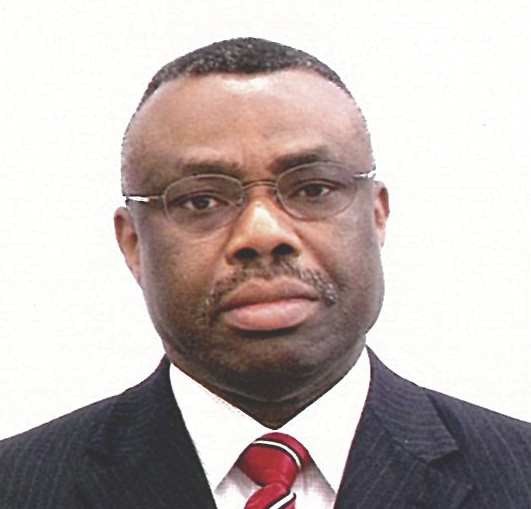 Timothy O. Odi is an Engineering Fellow at Chevron Phillips Chemical Co. and an AIChE Fellow. His work involves modeling and process engineering support of olefin and polyolefin manufacturing technologies. He joined Phillips Petroleum (which later became Conoco Phillips and Chevron Phillips Chemical) in 1997, having previously worked for Dow Chemical from 1990 to 1997. He is a member of AIChE’s Computing and Systems Technology Div. and the Fuels and Petrochemicals Div., and is an active member of AIChE’s South Texas (Houston) Local Section. He has held several leadership positions in AIChE: immediate past chair of the Minority Affairs Committee (MAC); former chair of the Societal Impact Operating Council (SIOC); and past treasurer of MAC. He received his BSChE (1980) from Univ. of Lagos (Nigeria), and his MS (1986) and PhD (1990), both in chemical engineering, from Northwestern Univ. He is a registered professional engineer in Louisiana.
Timothy O. Odi is an Engineering Fellow at Chevron Phillips Chemical Co. and an AIChE Fellow. His work involves modeling and process engineering support of olefin and polyolefin manufacturing technologies. He joined Phillips Petroleum (which later became Conoco Phillips and Chevron Phillips Chemical) in 1997, having previously worked for Dow Chemical from 1990 to 1997. He is a member of AIChE’s Computing and Systems Technology Div. and the Fuels and Petrochemicals Div., and is an active member of AIChE’s South Texas (Houston) Local Section. He has held several leadership positions in AIChE: immediate past chair of the Minority Affairs Committee (MAC); former chair of the Societal Impact Operating Council (SIOC); and past treasurer of MAC. He received his BSChE (1980) from Univ. of Lagos (Nigeria), and his MS (1986) and PhD (1990), both in chemical engineering, from Northwestern Univ. He is a registered professional engineer in Louisiana.Statement:
This is an exciting time for the chemical engineering profession. The vast opportunities presented by the shale-gas-fueled expansion of the chemical industry, the opportunities in renewable energy, and advances in modeling for safer design and operation of processes are among the reasons for this optimism. Along with these opportunities come challenges for AIChE to meet the diverse interests and expectations of engineers in the emerging fields and the traditional fields, especially for young professionals. It is gratifying that AIChE is already meeting this goal, as evident in its recent membership growth. This trend must be sustained for the financial strength of the Institute. As a director, I will focus on the following issues, if elected:
- supporting activities to promote member recruitment and retention; promoting seamless transition from student to professional membership; and working with the Young Professionals Committee to address the needs of young engineers
- increasing awareness and engagement of AIChE in the oil and energy sector, renewable energy, chemicals, and materials, while encouraging participation in AIChE activities by engineers in these fields
- making local sections more relevant and effective for members, including formation and support of virtual local sections domestically and internationally
- fostering AIChE’s global outreach through partnerships with international organizations for the benefit of members
- supporting strategies for positioning AIChE to play leading roles in the emerging fields of the profession
- supporting K-12 initiatives and scholarship programs for college students, to provide a pipeline for future chemical engineers
- supporting AIChE’s diversity initiatives, leading to full participation and career success for all members.
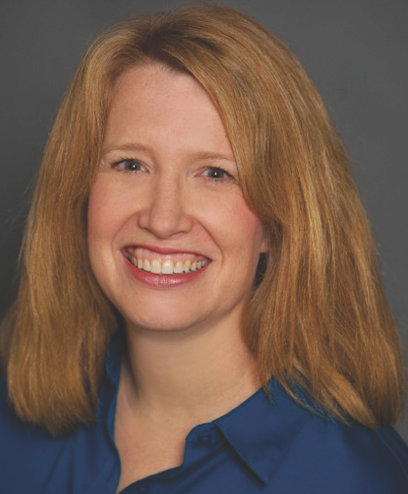 Anne Skaja Robinson joined Tulane Univ. in January 2012 as the Chair of Chemical and Biomolecular Engineering. Prior to Tulane, she was a full professor and Associate Chair at the Univ. of Delaware, where she started her academic career. Her honors include a DuPont Young Professor Award and a National Science Foundation Presidential Early Career Award for Science and Engineering, and she is a Fellow of the American Institute for Medical and Biological Engineering. She has several patents and over 70 publications in the field of biochemical engineering. She is on the editorial board of Biotechnology and Bioengineering, the FDA Advisory Committee for Pharmaceutical Science and Clinical Pharmacology, and the governing board of the Council for Chemical Research. Robinson is a member of AIChE, the American Chemical Society (ACS), Protein Society, Biophysical Society, and Sigma Xi Research Society, and was an executive committee member of the ACS BIOT division for many years.
Anne Skaja Robinson joined Tulane Univ. in January 2012 as the Chair of Chemical and Biomolecular Engineering. Prior to Tulane, she was a full professor and Associate Chair at the Univ. of Delaware, where she started her academic career. Her honors include a DuPont Young Professor Award and a National Science Foundation Presidential Early Career Award for Science and Engineering, and she is a Fellow of the American Institute for Medical and Biological Engineering. She has several patents and over 70 publications in the field of biochemical engineering. She is on the editorial board of Biotechnology and Bioengineering, the FDA Advisory Committee for Pharmaceutical Science and Clinical Pharmacology, and the governing board of the Council for Chemical Research. Robinson is a member of AIChE, the American Chemical Society (ACS), Protein Society, Biophysical Society, and Sigma Xi Research Society, and was an executive committee member of the ACS BIOT division for many years.
Statement:
When I was in high school, I had no idea what a chemical engineer did, nor even as a college student did I have a sense of the breadth and depth of the profession. Thirty years later, most of the K-12 students I encounter are similarly unaware of all that scientists and engineers do; the same is true for many of their parents. I believe this lack of connection between the engineering community and the rest of society contributes to the narrow appeal of engineering as a field of study for college students, and to the general lack of appreciation for the importance of science and engineering as drivers of public policy. Thus, a key challenge is to continue to find ways to engage the public in general, and K-12 students in particular.
In addition, although chemical engineering employment levels remain high, providing networking and mentoring opportunities for chemical engineering students and young professionals is critical to keeping students engaged in the field and connecting them to career opportunities. This task is particularly important for women and under-represented minorities, who often face greater challenges in developing a network.
As a Board member, I will focus on:
- supporting and enhancing the efforts of AIChE’s local sections in their outreach to K-12 students
- increasing mentoring and networking opportunities through AIChE
- ensuring that participation in AIChE conferences, sponsored programs, and Institute leadership reflects the broad demographic and professional diversity of our organization and the chemical engineering community
- developing and disseminating a database of available experts who will discuss topical engineering and scientific issues for the lay media or in other public forums.
Sharon M. Robinson
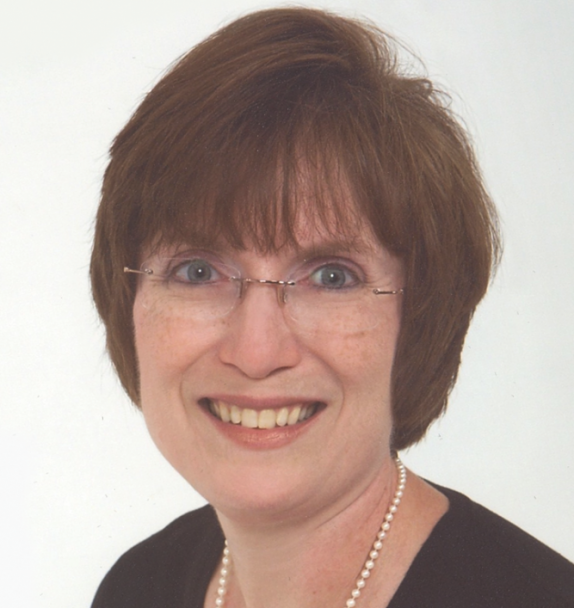 Sharon M. Robinson is a senior staff member at the Oak Ridge National Laboratory (ORNL). During her 32-year tenure at ORNL, she has supported the U.S. Dept. of Energy’s (DOE) programs in environmental management, energy efficiency, nuclear energy, and fossil energy. Her DOE assignments included provision of technical support to the Industrial Technology Program and the Chemical Industry Vision 2020 Technology Partnership, with responsibility for developing research collaborations between industry, universities, national laboratories, and funding agencies focused on improved industrial energy efficiency. She was also a member of a task force established to develop a strategic plan for radioactive waste disposition and reutilization of DOE-wide assets. She is a member of AIChE’s Separations, Nuclear Engineering, Management, and Process Development divisions. She is a Fellow of AIChE and was the recipient of the Nuclear Engineering Div.’s Robert E. Wilson Award (2009).
Sharon M. Robinson is a senior staff member at the Oak Ridge National Laboratory (ORNL). During her 32-year tenure at ORNL, she has supported the U.S. Dept. of Energy’s (DOE) programs in environmental management, energy efficiency, nuclear energy, and fossil energy. Her DOE assignments included provision of technical support to the Industrial Technology Program and the Chemical Industry Vision 2020 Technology Partnership, with responsibility for developing research collaborations between industry, universities, national laboratories, and funding agencies focused on improved industrial energy efficiency. She was also a member of a task force established to develop a strategic plan for radioactive waste disposition and reutilization of DOE-wide assets. She is a member of AIChE’s Separations, Nuclear Engineering, Management, and Process Development divisions. She is a Fellow of AIChE and was the recipient of the Nuclear Engineering Div.’s Robert E. Wilson Award (2009).
Statement:
The future of chemical engineering in the U.S. is bright as a result of the improving economy and the new opportunities presented by shale gas. My primary objective as a director will be to help AIChE capitalize upon these new opportunities while best serving the existing membership at the local, national, and international levels.
I became an AIChE member as an undergraduate and have continued to be active at all levels. Over the past decade, I have participated on the Executive Board of the Program Committee, the Chemical Engineering Technology Operating Council, the Nominating Committee, the Admissions Committee, the Ambassador Program, the Education Div. Formation Committee, the Alternative Energy Committee, and the Center for Waste Reduction Technology. I am a past chair of the Research and New Technologies Committee, a director of the Separations Div., and a longtime officer of the Knoxville–Oak Ridge Section.
As an AIChE director, I plan to use this broad experience to represent the best interests of AIChE members in strategic planning and governance of the Institute’s finances, and to position the Institute to be relevant and effective during this time of expansion in the domestic chemical industry. My strategy will include advocating for the development of a workforce educated in the fundamental chemical engineering skills needed to support the petrochemical and chemical industries. To meet these objectives, I will support enhancement of ongoing efforts to transition young engineers from student membership to full membership and to strengthen links between local sections, national, and global programs.
S. Shariq Yosufzai
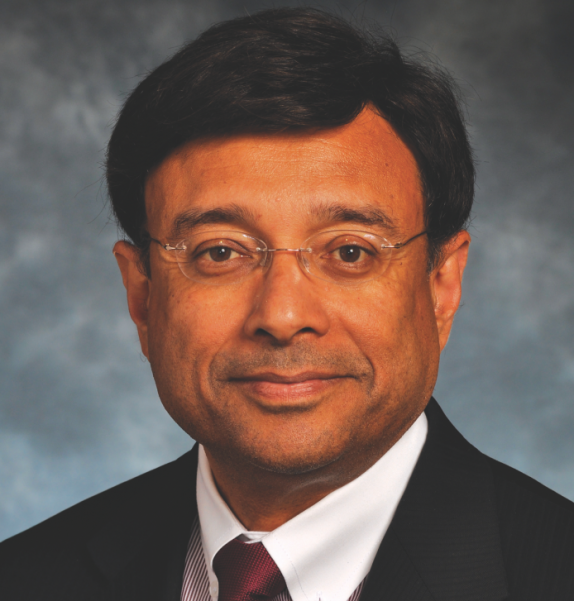 Shariq Yosufzai is Vice President of Global Diversity, Ombuds and University Partnerships, at Chevron Corp. Previously, he served as President of Global Marketing and was responsible for Chevron’s fuel marketing operations in 45 countries through three brands: Chevron, Texaco, and Caltex. Prior to that, he was President of ChevronTexaco Global Lubricants, which has a presence in 180 countries. An AIChE Fellow, Shariq was the first chair of AIChE’s Societal Impact Operating Council (SIOC). He also chaired the Public Relations Committee and the Southeast Texas Section, and was chair of AIChE’s first Management Conference. A life member of AIChE, he received AIChE’s inaugural Industry Leadership Award, the Management Division’s Robert L. Jacks Memorial Award, and the Fuels and Petrochemicals Div. Leadership Award. He is a trustee of the AIChE Foundation, a past chair of the California Chamber of Commerce, and an Executive Committee member of the San Francisco Opera Board of Directors. He is a Distinguished Alumnus of Texas A&M Univ., where he is also an Outstanding International Alumnus, Outstanding Engineering Alumnus, and Distinguished Chemical Engineering Alumnus.
Shariq Yosufzai is Vice President of Global Diversity, Ombuds and University Partnerships, at Chevron Corp. Previously, he served as President of Global Marketing and was responsible for Chevron’s fuel marketing operations in 45 countries through three brands: Chevron, Texaco, and Caltex. Prior to that, he was President of ChevronTexaco Global Lubricants, which has a presence in 180 countries. An AIChE Fellow, Shariq was the first chair of AIChE’s Societal Impact Operating Council (SIOC). He also chaired the Public Relations Committee and the Southeast Texas Section, and was chair of AIChE’s first Management Conference. A life member of AIChE, he received AIChE’s inaugural Industry Leadership Award, the Management Division’s Robert L. Jacks Memorial Award, and the Fuels and Petrochemicals Div. Leadership Award. He is a trustee of the AIChE Foundation, a past chair of the California Chamber of Commerce, and an Executive Committee member of the San Francisco Opera Board of Directors. He is a Distinguished Alumnus of Texas A&M Univ., where he is also an Outstanding International Alumnus, Outstanding Engineering Alumnus, and Distinguished Chemical Engineering Alumnus.
Statement:
I will work on focusing AIChE on “Five Pillars” of progress.
- Diversity — Enhance the diversity of the profession. AIChE is in a unique position to support the education and training of chemical engineers from under-represented groups. AIChE should play an active role starting at the K-12 level to encourage more women and minorities to enter the STEM fields. A major objective should be the retention and development of women and minorities in our profession.
- Nexus — Establish AIChE as the nexus for bringing together industry, academia, and government to collaborate on issues and solutions. Maximize AIChE’s power to unite diverse groups, to bring together all our stakeholders.
- Technology — Use social media to improve young members’ access to AIChE’s programs. We must employ technology to a greater extent to enhance the development of young professionals through online mentoring and education. Develop platforms that enable networking and knowledge sharing.
- Excellence — Elevate fundraising and endowment activities to take AIChE to the next level of excellence. AIChE is poised to become the premier professional engineering society in the world — one that is distinguished for its programs, outreach, and impact on society. To do so, we must create a financial foundation that sustains and positions us for the next 100 years.
- Global — Strategically position AIChE as the aspirational destination for chemical engineers around the globe. Build upon the foundation that positions AIChE as the premier professional society worldwide.
I welcome your comments and questions about AIChE. Please feel free to reach me at ssyosufzai@chevron.com.
 Anne Skaja Robinson joined Tulane Univ. in January 2012 as the Chair of Chemical and Biomolecular Engineering. Prior to Tulane, she was a full professor and Associate Chair at the Univ. of Delaware, where she started her academic career. Her honors include a DuPont Young Professor Award and a National Science Foundation Presidential Early Career Award for Science and Engineering, and she is a Fellow of the American Institute for Medical and Biological Engineering. She has several patents and over 70 publications in the field of biochemical engineering. She is on the editorial board of Biotechnology and Bioengineering, the FDA Advisory Committee for Pharmaceutical Science and Clinical Pharmacology, and the governing board of the Council for Chemical Research. Robinson is a member of AIChE, the American Chemical Society (ACS), Protein Society, Biophysical Society, and Sigma Xi Research Society, and was an executive committee member of the ACS BIOT division for many years.
Anne Skaja Robinson joined Tulane Univ. in January 2012 as the Chair of Chemical and Biomolecular Engineering. Prior to Tulane, she was a full professor and Associate Chair at the Univ. of Delaware, where she started her academic career. Her honors include a DuPont Young Professor Award and a National Science Foundation Presidential Early Career Award for Science and Engineering, and she is a Fellow of the American Institute for Medical and Biological Engineering. She has several patents and over 70 publications in the field of biochemical engineering. She is on the editorial board of Biotechnology and Bioengineering, the FDA Advisory Committee for Pharmaceutical Science and Clinical Pharmacology, and the governing board of the Council for Chemical Research. Robinson is a member of AIChE, the American Chemical Society (ACS), Protein Society, Biophysical Society, and Sigma Xi Research Society, and was an executive committee member of the ACS BIOT division for many years.Statement:
When I was in high school, I had no idea what a chemical engineer did, nor even as a college student did I have a sense of the breadth and depth of the profession. Thirty years later, most of the K-12 students I encounter are similarly unaware of all that scientists and engineers do; the same is true for many of their parents. I believe this lack of connection between the engineering community and the rest of society contributes to the narrow appeal of engineering as a field of study for college students, and to the general lack of appreciation for the importance of science and engineering as drivers of public policy. Thus, a key challenge is to continue to find ways to engage the public in general, and K-12 students in particular.
In addition, although chemical engineering employment levels remain high, providing networking and mentoring opportunities for chemical engineering students and young professionals is critical to keeping students engaged in the field and connecting them to career opportunities. This task is particularly important for women and under-represented minorities, who often face greater challenges in developing a network.
As a Board member, I will focus on:
- supporting and enhancing the efforts of AIChE’s local sections in their outreach to K-12 students
- increasing mentoring and networking opportunities through AIChE
- ensuring that participation in AIChE conferences, sponsored programs, and Institute leadership reflects the broad demographic and professional diversity of our organization and the chemical engineering community
- developing and disseminating a database of available experts who will discuss topical engineering and scientific issues for the lay media or in other public forums.
Sharon M. Robinson
 Sharon M. Robinson is a senior staff member at the Oak Ridge National Laboratory (ORNL). During her 32-year tenure at ORNL, she has supported the U.S. Dept. of Energy’s (DOE) programs in environmental management, energy efficiency, nuclear energy, and fossil energy. Her DOE assignments included provision of technical support to the Industrial Technology Program and the Chemical Industry Vision 2020 Technology Partnership, with responsibility for developing research collaborations between industry, universities, national laboratories, and funding agencies focused on improved industrial energy efficiency. She was also a member of a task force established to develop a strategic plan for radioactive waste disposition and reutilization of DOE-wide assets. She is a member of AIChE’s Separations, Nuclear Engineering, Management, and Process Development divisions. She is a Fellow of AIChE and was the recipient of the Nuclear Engineering Div.’s Robert E. Wilson Award (2009).
Sharon M. Robinson is a senior staff member at the Oak Ridge National Laboratory (ORNL). During her 32-year tenure at ORNL, she has supported the U.S. Dept. of Energy’s (DOE) programs in environmental management, energy efficiency, nuclear energy, and fossil energy. Her DOE assignments included provision of technical support to the Industrial Technology Program and the Chemical Industry Vision 2020 Technology Partnership, with responsibility for developing research collaborations between industry, universities, national laboratories, and funding agencies focused on improved industrial energy efficiency. She was also a member of a task force established to develop a strategic plan for radioactive waste disposition and reutilization of DOE-wide assets. She is a member of AIChE’s Separations, Nuclear Engineering, Management, and Process Development divisions. She is a Fellow of AIChE and was the recipient of the Nuclear Engineering Div.’s Robert E. Wilson Award (2009).Statement:
The future of chemical engineering in the U.S. is bright as a result of the improving economy and the new opportunities presented by shale gas. My primary objective as a director will be to help AIChE capitalize upon these new opportunities while best serving the existing membership at the local, national, and international levels.
I became an AIChE member as an undergraduate and have continued to be active at all levels. Over the past decade, I have participated on the Executive Board of the Program Committee, the Chemical Engineering Technology Operating Council, the Nominating Committee, the Admissions Committee, the Ambassador Program, the Education Div. Formation Committee, the Alternative Energy Committee, and the Center for Waste Reduction Technology. I am a past chair of the Research and New Technologies Committee, a director of the Separations Div., and a longtime officer of the Knoxville–Oak Ridge Section.
As an AIChE director, I plan to use this broad experience to represent the best interests of AIChE members in strategic planning and governance of the Institute’s finances, and to position the Institute to be relevant and effective during this time of expansion in the domestic chemical industry. My strategy will include advocating for the development of a workforce educated in the fundamental chemical engineering skills needed to support the petrochemical and chemical industries. To meet these objectives, I will support enhancement of ongoing efforts to transition young engineers from student membership to full membership and to strengthen links between local sections, national, and global programs.
S. Shariq Yosufzai
 Shariq Yosufzai is Vice President of Global Diversity, Ombuds and University Partnerships, at Chevron Corp. Previously, he served as President of Global Marketing and was responsible for Chevron’s fuel marketing operations in 45 countries through three brands: Chevron, Texaco, and Caltex. Prior to that, he was President of ChevronTexaco Global Lubricants, which has a presence in 180 countries. An AIChE Fellow, Shariq was the first chair of AIChE’s Societal Impact Operating Council (SIOC). He also chaired the Public Relations Committee and the Southeast Texas Section, and was chair of AIChE’s first Management Conference. A life member of AIChE, he received AIChE’s inaugural Industry Leadership Award, the Management Division’s Robert L. Jacks Memorial Award, and the Fuels and Petrochemicals Div. Leadership Award. He is a trustee of the AIChE Foundation, a past chair of the California Chamber of Commerce, and an Executive Committee member of the San Francisco Opera Board of Directors. He is a Distinguished Alumnus of Texas A&M Univ., where he is also an Outstanding International Alumnus, Outstanding Engineering Alumnus, and Distinguished Chemical Engineering Alumnus.
Shariq Yosufzai is Vice President of Global Diversity, Ombuds and University Partnerships, at Chevron Corp. Previously, he served as President of Global Marketing and was responsible for Chevron’s fuel marketing operations in 45 countries through three brands: Chevron, Texaco, and Caltex. Prior to that, he was President of ChevronTexaco Global Lubricants, which has a presence in 180 countries. An AIChE Fellow, Shariq was the first chair of AIChE’s Societal Impact Operating Council (SIOC). He also chaired the Public Relations Committee and the Southeast Texas Section, and was chair of AIChE’s first Management Conference. A life member of AIChE, he received AIChE’s inaugural Industry Leadership Award, the Management Division’s Robert L. Jacks Memorial Award, and the Fuels and Petrochemicals Div. Leadership Award. He is a trustee of the AIChE Foundation, a past chair of the California Chamber of Commerce, and an Executive Committee member of the San Francisco Opera Board of Directors. He is a Distinguished Alumnus of Texas A&M Univ., where he is also an Outstanding International Alumnus, Outstanding Engineering Alumnus, and Distinguished Chemical Engineering Alumnus.Statement:
I will work on focusing AIChE on “Five Pillars” of progress.
- Diversity — Enhance the diversity of the profession. AIChE is in a unique position to support the education and training of chemical engineers from under-represented groups. AIChE should play an active role starting at the K-12 level to encourage more women and minorities to enter the STEM fields. A major objective should be the retention and development of women and minorities in our profession.
- Nexus — Establish AIChE as the nexus for bringing together industry, academia, and government to collaborate on issues and solutions. Maximize AIChE’s power to unite diverse groups, to bring together all our stakeholders.
- Technology — Use social media to improve young members’ access to AIChE’s programs. We must employ technology to a greater extent to enhance the development of young professionals through online mentoring and education. Develop platforms that enable networking and knowledge sharing.
- Excellence — Elevate fundraising and endowment activities to take AIChE to the next level of excellence. AIChE is poised to become the premier professional engineering society in the world — one that is distinguished for its programs, outreach, and impact on society. To do so, we must create a financial foundation that sustains and positions us for the next 100 years.
- Global — Strategically position AIChE as the aspirational destination for chemical engineers around the globe. Build upon the foundation that positions AIChE as the premier professional society worldwide.
I welcome your comments and questions about AIChE. Please feel free to reach me at ssyosufzai@chevron.com.
